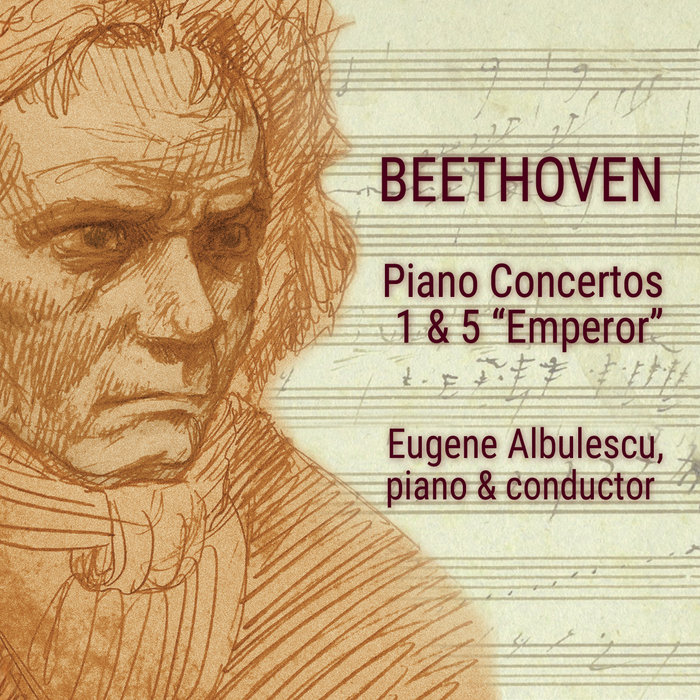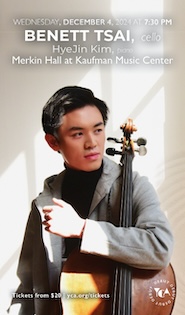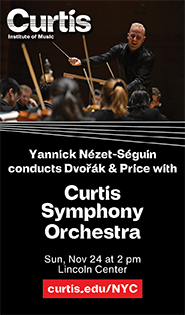Albulescu brings vitality, balance to familiar Beethoven

Beethoven: Piano Concertos Nos. 1 & 5 “Emperor”; Eugene Albulescu, pianist and conductor; Orchestra of Friends (AMP Recordings).
Every classical music fan should have a question in mind each time they face a new recording of Beethoven’s music: Do we really need this?
There are already more Beethoven recordings than anyone could reasonably listen to in a lifetime, and there are so many exceptional ones—classics in the discography—that any new album is like pebble facing a mountain. On top of this general issue, we are fast approaching the composer’s 250th birthday (December 16) and despite concerts being cancelled all over the globe, record companies have maintained their celebratory releasing schedule of new and reissued records.
And so here comes a new disc from Eugene Albulescu (a Romanian-born and New Zealand-raised musician who currently teaches at Lehigh University), where he doubles as solo pianist and conductor in Beethoven’s Piano Concertos Nos. 1 and 5. The Orchestra of Friends is a local Pennsylvania group, an amalgamation of part-time players associated with the Ballet Guild of Lehigh Valley and the Pennsylvania Youth Ballet, along with other musicians.
But name recognition and regional status are irrelevant, non-musical qualities, and this is an enjoyable album on any terms. There is a vitality to the performances that can elude more famous and experienced ensembles, for which standard rep such as this can often fall into routine. The orchestra is smallish and good, with substance in the strings and color in the winds and brass. There’s a light touch to the bowing, and crisp phrasing.
The single word that sums up the quality of Albulescu’s playing is “balance.” Every decision seems to bring together the proper proportions of tempo, dynamics, articulation, and emphasis. He lets the drama come to him, especially in Concerto No. 1. Beethoven was very much following the Mozart model here, and the recording captures that sense of wit and elan. Albulescu plays Beethoven’s own cadenzas, including the extended one for the first movement the composer wrote later in his career; in that Albulescu unleashes the willful, idiosyncratic fire of late Beethoven without every losing the aesthetics of this early concerto. The driving rhythm in the rondo is light-footed and the pace unflagging.
Similalry, the “Emperor” is grand without any indulgence from the pianist, though the orchestra doesn’t have the same amount of spring in the first movement as they displayed in the earlier work. Beethoven here is more mercurial and the emotional complexity is subtler and at a greater distance. Albulescu sounds in his element, his thinking moving with agility and smoothness through all the twists and turns. The Adagio is grounded and charming. Albulescu shines throughout with his musicality and intelligence, though in this more challenging work one hears some fitful separation in the higher quality of the soloist against the orchestra.
Albulescu’s liner notes are informative and cover the fairly obscure but fascinating topic of the connection between the 18th century’s orchestral continuo keyboard role and the conducting concerto soloist. The recording is warm, if a touch thick; Albulescu goes into some detail on the stage setup, which creates a sense of air and distance between the musicians and the listener. While at first unexpected, this does provide the home listening experience with a “live” feeling, something that is more than welcome in late 2020.
The disc can be ordered through Bandcamp or Amazon, and is available through the major streaming services.



